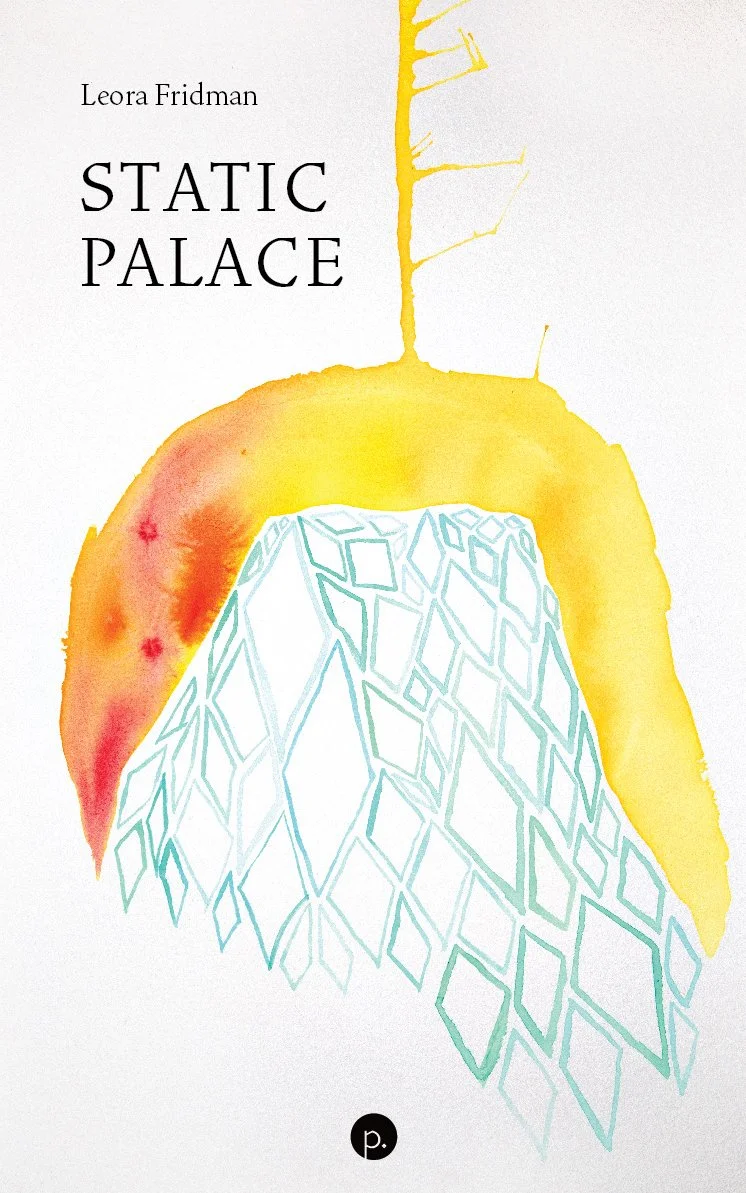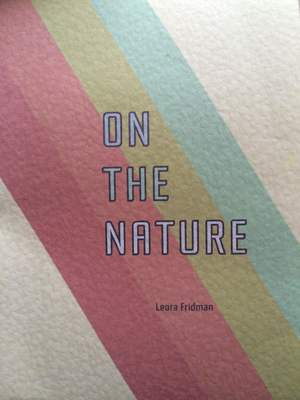Books
BOUND UP is available from your favorite local bookstore, Bookshop.org, or direct from the press. If you absolutely must, you can also find the book on rhymes-with-Glamazon.
In an autotheoretical journey through bondage, domination, and intimacy, Leora Fridman uncovers how Jewish historical trauma can be challenged and explored in embodied relations. Drawing on her experiences as an American Jew in Germany, Fridman delves into BDSM practices and experimental communities from Oakland to Berlin. This work weaves personal encounters with critical analysis founded in feminist theory, queer literature, Holocaust history, and memory studies. Bound Up begins with kink and leads us through a sensual and intelligent approach to intergenerational trauma and lived politics. What kind of healing can take place in the relational and physical realm? How can intimacy contradict and complement the process of political reparations? Fridman layers a nuanced understanding of shame, responsibility, and power with explorations of cinema, contemporary art, and popular culture to shed light on topics from personal and political relationships to victimhood and blame. Both timely and timeless, this work is an address to history and the contemporary moment, relevant to Jews, diasporic scholars, and all exploring ethical relationships with history and with other humans.
“Honest, informative, and often hilarious.” —Joey Soloway
“Fridman is my favorite type of writer: one whose fascination with a subject is so profound and acutely felt and rigorously investigated that after reading her work I come out obsessed.” —Bess Kalb
“In her thoughtful exploration of her own story, Fridman tells a wider tale of power, grace, and survival, and readers will be grateful to benefit from her bravery.” —Lynn Melnick
“Hot, smart, and intimate, this book kept me spellbound and turned on, provoked by Leora Fridman's intricate thinking about unthinkable things. I would follow her anywhere she pleases, in all her nimble explorations and fascinations.” —Dori Midnight
“straight into my veins!” —Hrag Vartanian, Hyperallergic
STATIC PALACE is available from Punctum Books
In the face of unimaginably violent systems, our most vulnerable bodies — sick, disabled, unable to rise from bed — offer the resistance of imperative vulnerability. What can we learn from the body that cannot help but fail? How can porosity perform treachery within entrenched opressions? What kind of reading and relationship to text can enrich relationship instead of inscribing boundaries between us? What does it mean to accept the unacceptable, and what kind of power becomes available when we submit to forces larger than ourselves? How might we take refuge in discomfort, and in the process refuse the stale comforts offered by hyper-capitalist economics and white supremacy?
Static Palace, a collection of linked essays, weaves the writer’s experiences of chronic illness and activism under Trump rule to explore the possibility that arises from circumstances we often perceive as ruin: hopeless political systems, disabled bodies, narratives that stutter and do not complete themselves, the devastation of climate change. Spurred by the writer’s diagnosis with endometriosis and accompanying chronic conditions — which occurred immediately following the 2016 US Presidential Election — Static Palace is especially relevant in the context of rising fascism, pandemics, and the decay of social services and support networks.
A direct engagement with the patchwork, fragmented brain of digital life and sick brain, Static Palace is part lyric essay and part cultural criticism: it pulls from current events, including Black-led resistance movements and disability justice activism, and cites contemporary thinkers on gender, feminism, care, critical race, and disability studies towards an artful treatment of crisis and community. Its concerns move toward connection and inter-being. By threading a wide variety of theories and politics through the personal, Fridman seeks a fertile integrity through—and with—subjectivity. We witness a mind making, culling, and attempting to stave off isolation through intertextual and interpersonal conversation. This work complicates the meaning of belonging, family and tribe, challenges our impulses toward narrative resolution, and offers a nuanced understanding of interdependent being and thought.
“The essays are raw. They’re delicate but rough. They’re serious as hell but never patronizing.” —Mikhal Weiner
“This is a book that celebrates new forms and communal experiences, prioritizes conversation and curiosity.” —Caryl Pagel
MY FAULT was selected by Eileen Myles as winner of the Cleveland State University 2015 First Book Prize. You can purchase it from SPD, CSU or Amazon.
Publishers Weekly calls MY FAULT: "Ethically astute and wildly caring," "cerebral and soul-baring."
“My Fault is brainy and organic, interrupting itself. In My Fault politics and intimacy are jousting for the planet. Through My Faultnature appears, wearing a beautiful stuttering naked poem you know what they mean. Yes.” —Eileen Myles
“When someone says ‘my fault’ it’s usually just after something not so awful has happened; it’s usually a little light-hearted, a little excusable. When Leora Fridman says ‘my fault’ it’s not so simple as it is most welcoming. This new book introduces the poet as someone who is willing to be someone, not to hide behind so-called points of view or other concoctions of literary fastidiousness. There’s an ‘I’ in this book and it’s an ‘I’ saying over and over again here I am, how are you? This ‘I’ says ‘We are only looking about// Who can say where the handle is/ to this an opening door// Who can hit my switch?’ Reading My Fault is like being with a new friend who has chosen to trust you with her thoughts about just about everything. It’s rare a poet that lets herself be so exposed, so open for inspection, so unguarded.” —Dara Wier
Reviews
Caroline Crew @ Colorado Review
Virginia McLure @ Coldfront
Morgan Leigh Plessner @ Small Press Book Review
William Doreski @ Harvard Review
MAKE AN EFFORT, a chapbook of letter-essays, was released from Essay Press in 2017 and is available in full digitally here.
A collection drawn from letters and emails, MAKE AN EFFORT centers unseen labor in all its affection and clutter—the labor of reading, the labor of reaching, the labor of the link—”the wrestling attempt to connect”—as a means to understand the essential relational work of keeping in touch.
EXHAUST IT is a chapbook of collected prose on chronic illness and apocalypse, written and edited during a residency at Alley Cat Books. Copies are available at Alley Cat Books in San Francisco.
The tinctures for my digestive problems cost too much money so I decide to start making my own. I walk to the liquor store and ask the man across the counter for "your cheapest vodka" to infuse herbs into. I feel worried, suddenly, about his judgement upon my cheap vodka choice, and add, "it’s for a project — so it doesn’t matter how it tastes." He smiles sideways as he reaches behind him for the plastic jug and asks for my ID. "I getcha." He smirks. "People are always coming in here for ‘projects.'"
PRECIOUS COAST was released in 2013 from Hangman Books. It's available for free download here.
ON THE NATURE, a double chapbook including ON THE ARCHITECTURE and ESSENTIAL NATURE, was released in 2014 from The New Megaphone, and is currently sold out.
about ESSENTIAL NATURE
If read while sick, this will give you a plan. If read while sex, this will learn you. If read while spasm, this will be the right belt. If read while fire, this is the story. If read while battle, this can be your blow or your cover or your cry. --Kelin Loe
Leora Fridman's ESSENTIAL NATURE is a masterful work of impeccable desperation. Read it to see how "the brink of sound" become a rapturous brink of light. --Zach Savich
The intricate, ancestral jazz of ESSENTIAL NATURE cannot help but draw the reader into a world rich with messages of prophecy and history, as if Cassandra's warnings and the Sirens' song had blended into one. Fridman's analysis of our inherited geographies--the virtuous wreck--forgives everything and misses nothing.
--Laurie Saurborn
about ON THE ARCHITECTURE
If read while cold, this will touch wire to water. If read alone, this will make a market. If read while hunt, this will open earth. If read right now, this echoes legend. If read while still, this will be your bell. If read while camp, this runs to the leaves.
--Kelin Loe
What does the ballad measure measure? In Leora Fridman's ON THE ARCHITECTURE, it sashays "down the riot way" to sensually plunder the language of franchises and collective upheaval with the music of what the poems call "smallness" but I call home. One is "heard towelling off postwar," one comes to "believe a greenhouse," comes to "believe the supple / is an axe." It is a distinct, unsettling pleasure to live within the "collapsible lore" of Fridman's poems.
--Zach Savich
In this confident, diachronic examination of contemporary culture's current construction, ON THE ARCHITECTURE is by turns political and pleading; both earth-bound and traveling at the speed of light. If the biblical Eve had been a computer programmer, she might have written just such a book--sexy, vulnerable, and wise.
--Laurie Saurborn
OBVIOUS METALS was hand-stitched, bound and printed in a numbered edition of 120 by Projective Industries in 2014. You can purchase it here.
Sommer Browning says: "Some of us don’t have a problem with the Mind-Body Problem; our mental state is embodied, our body is thought. This can make for a slippery “I” but as Fridman shows us, slippery means vibrantly alive. Her traveler is the “left/self” – the self left over, non-dominant, wrong – indefatigably surveying survival, friendship, and country, questioning each: What is physical? What is ghost? These poems are gasping and smitten. "
Toby Altman wrote a very generous review of Obvious Metals here, and Mike Begnal wrote one here.
Eduardo Milán: Poems is a selection of English translations of Eduardo Milán’s poems with the original Spanish included. It was published by Toad Press in 2012 and can be purchased here.








